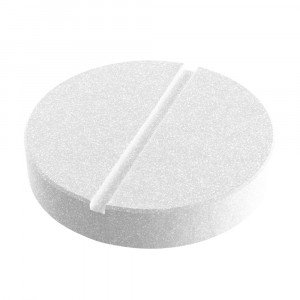 Welcome
Welcome
“May all be happy, may all be healed, may all be at peace and may no one ever suffer."
Opsonin Pharma Ltd.

Diohes DS 900mg + 100mg

Generic for Diseases
Diosmin and Hesperidin is a phlebotonic drug and a vascular protecting agent. It reinforces venous tone by prolonging the activity of parietal noradrenaline. Thus Diosmin and Hesperidin decreases venous capacitance, venous distensibility, and venous emptying time.
Diosmin and Hesperidin protects the microcirculation by fighting the microcirculation damaging process; It combats venous inflammation by decreasing leukocyte activation, and as a consequence, by inhibiting the release of inflammatory mediators, principally free radicals and prostaglandin. Thus Diosmin and Hesperidin normalizes capillary permeability and strengthens capillary resistance.
Diosmin and Hesperidin acts on the lymphatic system, It improves lymphatic drainage by increasing lymph flow and lymph oncotic pressure.
It is indicated in the treatment of-
- Acute hemorrhoidal attacks.
- Chronic hemorrhoidal disease.
- Organic and functional chronic venous insufficiency of the lower limbs with the following symptoms: heavy legs, pain, nocturnal cramps.
Diosmin 450 mg & Hesperidin 50 mg-
- Acute hemorrhoidal attacks: 3 tablets twice daily for the first 4 days, then 2 tablets twice daily for three days and if required 1 tablet twice daily as a maintenance dosage.
- Chronic hemorrhoids: 1 tablet twice daily.
- Chronic venous insufficiency: 1 tablet twice daily initially for seven days. Duration may be increased depending on severity.
Diosmin 900 mg & Hesperidin 100 mg-
- Acute Hemorrhoid: 1 tablet thrice daily for first 4 days, followed by 1 tablet twice daily for 3 days & then 1 tablet once daily as maintenance dose.
- Relapse of Internal Hemorrhoid & Chronic Hemorrhoid: 1 tablet once daily for 3 months.
- Chronic venous insufficiency: 1 tablet once daily for 2-6 months.
- Leg Wounds: 1 tablet once daily for 2 months.
Administration
Tablet should be taken at meal times.
Chronic venous insufficiency and its complications should be diagnosed and management monitored by a physician. It is contraindicated for anyone having a hypersensitivity to any ingredient in the product.
Some cases of routine gastric disorders and neurovegetative disorders (feeling of discomfort) have been reported. In this cases discontinuation of treatment is not required.
If the hemorrhoidal symptoms do not disappear within 15 days, patient should ask doctor for advice. Diosmin (up to 900 mg/day) has been administered to a small number of breast cancer patients who were experiencing lymphedema following surgical and nodal irradiation treatment with resultant reduction of arm edema but no effect on the cancer. Animal studies and more than 20 years of clinical use in Europe have not found any evidence of carcinogenicity or mutagenicity when the components of Diosmin & Hesperidin are used as recommended. As a precaution, Diosmin & Hesperidin is not recommended for patients with a history of cancer since no specific studies have been performed in this population.
Pregnancy & Lactation
Experimental studies have not shown any teratogenic effect in animals. In human beings, no harmful effect has so far been reported. In the absence of data concerning excretion into breast milk, breast feeding is not recommended during treatment.
Diohes DS 900mg + 100mg and more Available Brands
Fluvate 50mcg / sp...
Diclofen 50mg
Zovia Silver
Ropitor 10mg
Ticoma DS 0.50%
Emer 200mg / ml
Betasec 50mg
HollySeed 500mg
...
To be happy, beautiful, healthy, wealthy, hale and long-lived stay with DM3S.